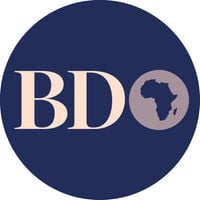
Parliament buildings. FILE PHOTO | NMG
Summary
- Apart from bribery concerns within the Police Service, tax officials have also been in the limelight for alleged involvement in tax evasion especially at the ports of entry or processing of Value Added Tax(VAT) dues by businesses.
- In May 2019 for example, the Kenya Revenue Authority(KRA)interdicted 75 members of its staff suspected of involvement in tax evasion.
- The affected were implicated in malpractices including illegal clearance of cargo, fraudulent amendment of tax returns so as to help taxpayers evade taxes and irregular issuance of Tax Compliance Certificates.
Kenyans believe almost half of their members of Parliament (MPs) take bribes, a new perception poll has shown in the wake of widespread graft cases implicating public officers.
The report by Afrobarometer-- a Pan-African, non-partisan research network—shows that Kenyans perceived nearly 50 percent of their legislators as corrupt even though the Police Service was ranked highest in sleaze at 68 percent.
“In several countries, such as Gabon, Mali, and Guinea, perceived corruption is high across many government institutions. But in others, most notably Kenya, Uganda, Sierra Leone, Nigeria, Côte d'Ivoire, and Ghana, the police stand out as being far more corrupt than other government institutions,” the report said.
Sh10,000 kickbacks
Parliament has in recent years been in the spot light amid claims of bribery among some legislators as witnessed in 2018 when the Speaker of the National Assembly Justin Muturi invited the Ethics and Anti-Corruption Commission(EACC) and the Directorate of Criminal Investigations(DCI) to investigate claims that some MPs had received kickbacks of between Sh10,000 and Sh30,000 to reject a report by a committee that had been investigating trade in contraband sugar in the country.
The survey ranked graft among tax officials at nearly 50 percent, judges and magistrates at 48 percent and officials in the Presidency office at about 30 percent.
The Afrobarometer reports indicate that 66 percent of Kenyans bribe police officers as it is very difficult to get their assistance and to avoid problems (39 percent).
“Average levels of bribe paying to the police are high compared to demand for bribes in exchange for other key public services such as the delivery of identity documents (25 percent), medical care (20 percent), and public school services (19 percent),” it adds.
Bribery culture
Encounters between the police and members of the public is high—raising the prospects of bribery. Kenyans in their day-to-day lives encounter the law enforces at traffic checkpoints, security patrols or when reporting crime or seeking key documentation such as police abstracts or certificate of good conduct.
Apart from bribery concerns within the Police Service, tax officials have also been in the limelight for alleged involvement in tax evasion especially at the ports of entry or processing of Value Added Tax(VAT) dues by businesses.
In May 2019 for example, the Kenya Revenue Authority(KRA)interdicted 75 members of its staff suspected of involvement in tax evasion. The affected were implicated in malpractices including illegal clearance of cargo, fraudulent amendment of tax returns so as to help taxpayers evade taxes and irregular issuance of Tax Compliance Certificates.
“Of those affected, 61 are from Domestic Taxes Department and 14 are from Customs and Border Control Department. The bulk of the cases (62) touch on staff based in Nairobi,” the taxman said in a statement on May 10,2019.
Additionally, KRA in 2018 terminated employment for 85 officers and instituted 15 lifestyle audits, leading to asset recovery and firings of culpable officers.
A 2018 Ethic and Anti-Corruption Commission (EACC) data showed that on average, Kenyans pay Sh3,833 in bribes.
Similarly, in 2019, EACC found that 35 percent of Kenyans pay a bribe to get quick government services, get employment, and avoid police arrest and to access medical services among others.
Whereas 38 percent of men paid bribes to police, only 30 percent of women did the same.
Moreover, 41 percent of rural residents pay bribes to get police assistance compared to 33 percent in urban areas.
The report drew data from 26,777 interviews done between July and April 2019.
According to the annual report by the Office of the Director of Public Prosecution (ODPP), the value of government funds stolen through corrupt deals in Kenya by State and public officers increased to Sh140.2 billion ($1.4 billion) in 2019 from Sh67.1 billion ($671 million) in 2017.
Continentally, police are the least trusted institution in Nigeria (76 percent), Sierra Leone (74 percent) and Ghana and Kenya tie at (61 percent). They are mostly trusted in Namibia (60 percent), Botswana (65 percent), and Burkina Faso (76 percent).
Corrupt MPs elsewhere
Gabon and Uganda (68 percent), Sierra Leone (62 percent), Nigeria (61 percent) and Ivory Coast (58 percent) are some of the African countries whose MPs are corrupt.
The least countries where MPs receive bribes include Cape Verde and Tunisia (22 percent), Botswana and Burkina Faso (30 percent) as well as Namibia (36 percent).
“Nigerians, Gabonese, and Sierra Leoneans are least trusting of their police; only one in four say they trust the police “somewhat” or “a lot.” In contrast, the police enjoy high popular trust in Burkina Faso (76 percent), Tunisia (69 percent), and Botswana (65 percent),” it shows.
Less citizens of Cape Verde (one percent), Namibia (five percent), Botswana (six percent) and Lesotho (10 percent) have paid bribes to police in order to get assistance.
This is as 77 percent of Nigerian said they paid bribes to police for assistance followed by Uganda (75 percent), Guinea (58 percent) and Sierra Leone (55 percent).





No comments :
Post a Comment